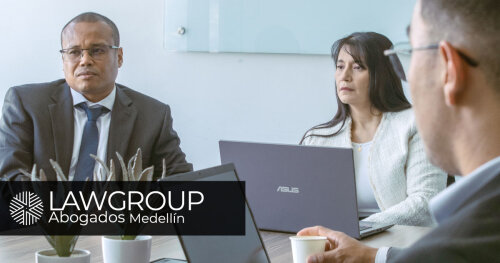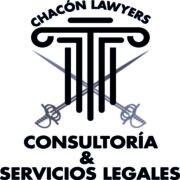Best Juvenile Law Lawyers in Bogota
Share your needs with us, get contacted by law firms.
Free. Takes 2 min.
List of the best lawyers in Bogota, Colombia
About Juvenile Law in Bogota, Colombia
Juvenile Law in Bogota refers to the set of legal norms and procedures that regulate the treatment, protection, and rights of minors under the age of 18. The Colombian legal system is committed to the best interests of the child, emphasizing rehabilitation, protection, and social reintegration over punitive measures. This field of law covers areas such as legal responsibility for criminal offenses, child protection proceedings, adoption, foster care, and family reunification. In all cases, authorities prioritize the physical, psychological, and emotional well-being of children and adolescents.
Why You May Need a Lawyer
There are several situations where individuals may require legal assistance in the field of Juvenile Law in Bogota. These include:
- If a minor is accused of committing a criminal offense and is facing a judicial process under the Juvenile Criminal Responsibility System.
- Cases of abuse, neglect, or exploitation where a child protection process is initiated by public authorities.
- Situations involving the removal of children from their homes and placement into foster care or adoption.
- Disputes concerning parental rights, custody, or visitation involving minors.
- When seeking to understand and assert the rights of minors in family, school, or community settings.
- If a child is a victim of crime and requires representation or legal guidance regarding victim support programs.
- When a family wishes to adopt a child, whether nationally or internationally.
A lawyer with experience in Juvenile Law can guide you through complex legal procedures, help protect the rights of the minor, and ensure that the proper protocols are followed in each case.
Local Laws Overview
Juvenile Law in Bogota operates under national legislation, principally the Law 1098 of 2006, also known as the Childhood and Adolescence Code. This law establishes the rights of children and adolescents, procedures for protection, and the Juvenile Criminal Responsibility System. Key points include:
- Minimum Age of Criminal Responsibility: Children under 14 years old are not criminally responsible. Adolescents between 14 and 18 years may face responsibility but are subject to specialized procedures with an emphasis on rehabilitation.
- Rights of Minors: All children have the right to life, health, education, identity, family, and protection from violence and exploitation. The law guarantees due process and participation.
- Juvenile Criminal Justice: Specialized courts and processes prioritize restorative justice, with penalties focused on education and reintegration rather than incarceration.
- Protection Cases: Authorities such as the Colombian Institute for Family Welfare (ICBF) can intervene in cases of abuse, abandonment, or violation of rights, providing protective measures and judicial oversight.
- Family Relations: The law regulates issues like adoption, custody, parenting responsibilities, and visitation to ensure the welfare of the minor.
- Victim Support: Special protocols exist for child victims of crime, including psychological assistance, legal representation, and state protection.
Frequently Asked Questions
What age defines a minor in Colombia?
In Colombia, a minor is any person under the age of 18. Special protections and procedures apply to this age group according to Colombian law.
Can a minor be sent to jail in Bogota?
Minors under 14 years of age cannot be held criminally responsible or sent to jail. Adolescents aged 14 to 18 may face judicial processes, but any penalties focus on rehabilitation and social reintegration rather than traditional imprisonment.
How are children protected from abuse or neglect?
If authorities suspect or detect abuse, neglect, or risk to a child, agencies such as the ICBF may initiate protective measures. This can include temporary removal from the home, provision of psychological care, and judicial proceedings to ensure the child’s safety.
Is it possible to adopt a child in Bogota?
Yes, both Colombian citizens and foreigners can adopt children in Bogota. The process is regulated and overseen by the ICBF and by family courts, requiring strict compliance with legal and welfare guidelines.
What rights do minors have if arrested by police?
Minors have the right to legal representation, to be informed of the reasons for their detention, to have their parents or guardians informed, and to be treated with dignity and respect throughout the legal process.
How long can a minor be held in custody?
The law sets strict limits on the time a minor can be held in custody, aiming to minimize detention and prioritize timely judicial review. Prolonged detention is not permitted except in exceptional and legally justified cases.
Can children testify in court?
Yes, children can testify in court cases, but there are special protocols to ensure their comfort and reduce trauma, including the presence of psychologists and use of child-friendly interview techniques.
What can I do if I witness child abuse?
If you witness child abuse or suspect a child is at risk, you should immediately report it to the ICBF, police, or local authorities. There are legal protections for those who make good-faith reports.
Are there specialized lawyers for juvenile cases?
Yes, there are lawyers who specialize in Juvenile Law. They are trained to handle the unique needs of minors and are familiar with the specialized judicial and administrative procedures involved.
How are parental rights affected if a parent is accused of abuse?
If a parent is accused of abuse or neglect, the authorities may temporarily or permanently limit parental rights to protect the child. The courts will consider evidence and the best interests of the child before making any final decisions.
Additional Resources
If you are seeking information, support, or legal advice in Juvenile Law in Bogota, the following resources may be helpful:
- Instituto Colombiano de Bienestar Familiar (ICBF): The main governmental agency handling child protection, family welfare, adoption services, and interventions for children at risk.
- Defensoría del Pueblo: The Ombudsman’s Office provides guidance and protection of human rights, especially for vulnerable populations including children.
- Family Courts (Juzgados de Familia): Handle cases related to custody, adoption, protective measures, and juvenile criminal responsibility.
- Victims’ Attention Centers (Centros de Atención a Víctimas): Offer services and support to children who are victims of crime or abuse.
- Legal Aid Programs: Various universities and NGOs provide free or low-cost legal services for minors and families in need.
Next Steps
If you need legal assistance in Juvenile Law in Bogota, consider the following steps:
- Identify the nature of your issue, whether it involves protection, custody, adoption, criminal accusations, or another area related to minors.
- Contact the ICBF, police, or relevant authority if the matter is urgent, such as abuse or imminent risk to a child.
- Consult with a lawyer who specializes in Juvenile Law. Many offer initial consultations to assess your case and advise on possible solutions.
- Gather any relevant documents or information, such as birth certificates, official reports, or court documents, to support your case.
- Attend all required hearings, appointments, or mediation sessions as directed by authorities or your legal representative.
- Follow up with the appropriate agencies or organizations to ensure ongoing protection and support for the minor involved.
Remember, the Colombian legal system prioritizes the welfare of minors, and there are mechanisms in place to protect their rights. Seeking professional legal advice is the best way to navigate the process and safeguard your interests and those of the child.
Lawzana helps you find the best lawyers and law firms in Bogota through a curated and pre-screened list of qualified legal professionals. Our platform offers rankings and detailed profiles of attorneys and law firms, allowing you to compare based on practice areas, including Juvenile Law, experience, and client feedback.
Each profile includes a description of the firm's areas of practice, client reviews, team members and partners, year of establishment, spoken languages, office locations, contact information, social media presence, and any published articles or resources. Most firms on our platform speak English and are experienced in both local and international legal matters.
Get a quote from top-rated law firms in Bogota, Colombia — quickly, securely, and without unnecessary hassle.
Disclaimer:
The information provided on this page is for general informational purposes only and does not constitute legal advice. While we strive to ensure the accuracy and relevance of the content, legal information may change over time, and interpretations of the law can vary. You should always consult with a qualified legal professional for advice specific to your situation.
We disclaim all liability for actions taken or not taken based on the content of this page. If you believe any information is incorrect or outdated, please contact us, and we will review and update it where appropriate.















